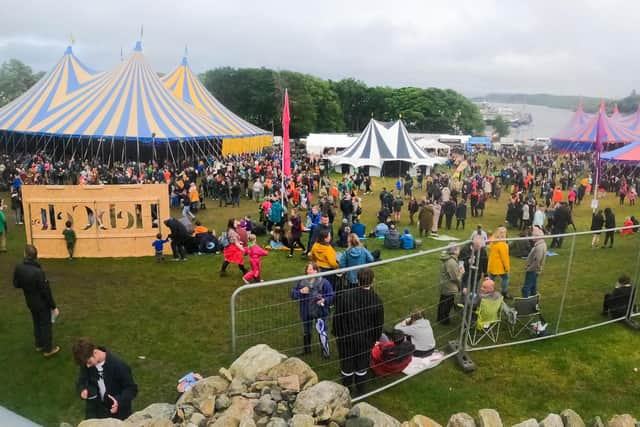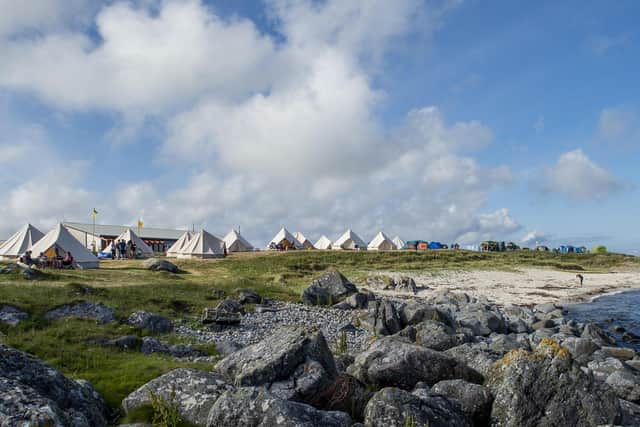Music festivals should work together when dust settles on rollercoaster summer – Brian Ferguson


When The Proclaimers took a bow at their final barnstorming “big top” appearance of the summer in Scotland it marked not only their own triumphant return to the Hebridean Celtic Festival but of the event itself.
Hebcelt, one of Scotland's longest-running island music festivals, has repeatedly broken its own attendance records as it has grown and evolved in the grounds of Lews Castle in Stornoway over more than a quarter of a century.
Advertisement
Hide AdAdvertisement
Hide AdAttracting a record audience of 19,000 to the four-day event was perhaps its biggest achievement yet, given the current rollercoaster season for Scotland’s outdoor musical festivals.


This was illustrated perfectly when news emerged on Tuesday over the fate of one of Scotland's newest festivals, which was due to go ahead in May on the same site used by HebCelt last weekend.
The collapse of the company behind the Midnight Sun Weekender event, which planned to bring The Pretenders, Primal Scream, Edwyn Collins and Ocean Colour Scene to Stornoway, is a far cry from “a festival of the kind dreams are made of.” Failing to deliver a box office return to match the hype has left creditors, including ticket-buyers, facing a nightmare scenario of losing everything they had invested in the event.pr
Planning the Midnight Sun Weekender in the same town as another long-running festival felt like a risky proposition given that rising costs have affected the events industry as much as household bills.
Advance ticket sales have also become more important than ever at a time of a growing tendency to book much later for live events.


At the turn of the year, this summer had been shaping up to be one of the busiest for outdoor music events in Scotland that I could recall.
Yet the last few months have seen more call-offs than any year I can remember.
Advertisement
Hide AdAdvertisement
Hide AdPoor ticket sales were behind the demise of Doune The Rabbit Hole, in Stirlingshire, Otherlands, in Perthshire, and Breakout, in Fife.
Another Perthshire festival, Mugstock, is at risk of cancellation due to poor ticket sales, with organisers taking the unusual step of publicly setting a deadline of this Friday to reach a bookings target.
And the organisers of the sold-out Tiree Music Festival are now counting the cost of an eleventh-hour cancellation this month due to high winds, after the site had been set up.
Unpredictable weather is unfortunately likely to become an increasing factor in the planning of outdoor festivals already finely balanced financially.
Every event organiser in the country has already had to grapple with the impact of soaring costs over the last couple of years.
Festivals traditionally supported by public funding have found increasing competition for a share of funding pots which have simply not been increased in line with demand.
Then there is the increasing focus on the recruitment of volunteers to help stage high-profile, publicly-funded events.
Advertisement
Hide AdAdvertisement
Hide AdThere are many more outdoor music festivals yet to take place this summer, not least Belladrum in the Highlands ad=ns.
But when the dust settles it may be time for the Scottish music industry to take collective stock of its frantically busy but fragile festivals landscape.
That could only help ensure that long-standing events get the maximum possible funding, encourage organisers to work together and learn from each other, and agree best practice guidelines for how artists, workers, volunteers and audiences should be treated.
Comments
Want to join the conversation? Please or to comment on this article.
